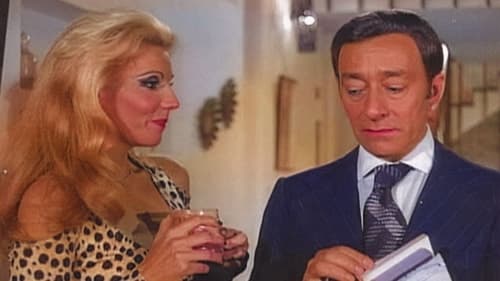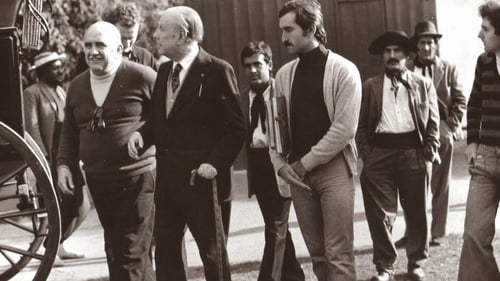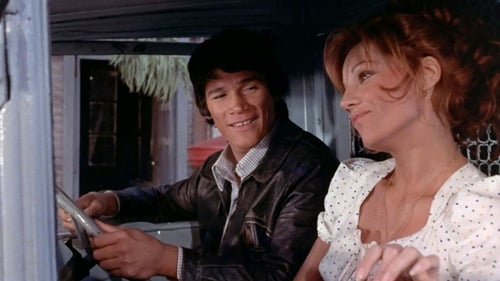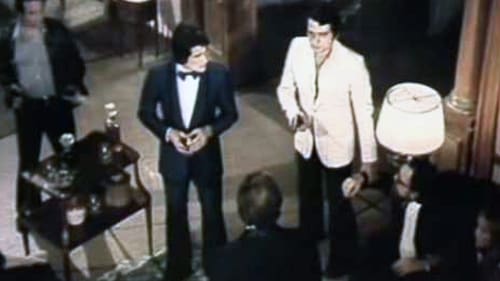Juan José Camero
Birth : 1943-09-15, Almagro, Buenos Aires, Argentina

Himself
There are very few icons in Argentine culture capable of appealing to both popular and elitist tastes. Leonardo Favio was undoubtedly one of them. An unseasonable Peronist attached to the liturgy of his land, the director, born in the province of Mendoza, was and artist at every craft. a Renassaince man, but above all, a filmmaker. This is how "Favio: Chronicle of a Director" recaptures him, as a man of film who fed from radio, acting, music and painting in order to build up the handful of rhapsodies with which he adorned argentinean cinematography

León
Ana and Federico have only been married for a few years and everything is going well until the sudden arrival of Úrsula in their lives to change them forever.

The drama tells the story of an Argentine elementary-school teacher sent by the government to a rural hamlet located in the northwestern province of Jujuy. It shows how he touches the lives of the villagers, especially the young and impressionable boy Verónico, whose mother died and father left to seek work when he was an infant. The film is based on a non-fiction book written by Fortunato Ramos, a rural teacher in northwest Argentina, that discusses his teaching experiences.

Ricardo Anselmi
Two drug gangs clash in their quest to dominate the market.

While growing up on the pampas, a young boy becomes fascinated with nature and the mysteries of the human soul.

Dr. Ricardo Basaldúa
Those interned in a psychiatric establishment are involved in a police issue.

Alberto, who has been married to Laura for twenty years, meets Monica in his office, a serious and formal employee with whom he strikes up a friendship.

Ezequiel Labourdé
Eugenia's parents die. She goes to live with Amalita, her close friend. Her grandmother Amalia Pradere a wealth landlady, takes the orphan under her protection. After a chain of events, disappearing her grandchild, Eugenia will take Amalita's place. She will inherit not only Amalia's possessions but also Ezequiel's love, Amalita's widower.

Benjamín Otálora
Benjamin Ortalora is a young man who leaves Buenos Aires after murdering a rival. He goes to Montevideo where his cool boldness draws the attention of gang leader Azevedo Bandeira. When the old bandit becomes ill, Ortalora makes a determined play to take his place.

Nazareno Cruz
Nazareno Cruz is the seventh son of a couple living in a high mountain village. According to a myth, a seventh son will become a wolf on nights of the full moon but this doesn't occur to him. When he's older, he meets the Devil, who offers him the wealth of the world if he turns his back on his newfound love, but if he refuses, he'll become a wolf.

In a boring marriage a model-photographer attracts the husband and a young man to the woman.

Héctor
A sexually-repressed girl of the Buenos Aires slums slowly goes mad after marrying.

Novio de Blanca
A man has to come to terms with his wasted youth, estranged family and grim prospects for the future.

Amadeo
Amid chases, fights and shootings, three undercover agents proposed derail a band of gangsters and save a famous scientist who had been kidnapped.

Biopic of Ceferino Namuncurá (1886-1905), son of a Mapuche cacique and a white woman, and the first Indian of South America to be beatified. The film starts out as a war movie, showing his father Manuel battling the Spanish and taking a white woman as his captive bride. But little of interest happens after Ceferino is born. His beatification relies partly on his "miraculous" survival after falling in a stream as a baby, but the film does not present this with any great drama, and plods through the rest of the boy's life with similar tepor. Ceferino does well in school, attracts the interest of a priest, attends a Catholic school in Buenos Aires, and studies for the priesthood in Italy, where he dies of tuberculosis after a few unconvincing coughs.

Banana
Shortly before a match against River Plate, members of the Boca Juniors football team are kidnapped.










